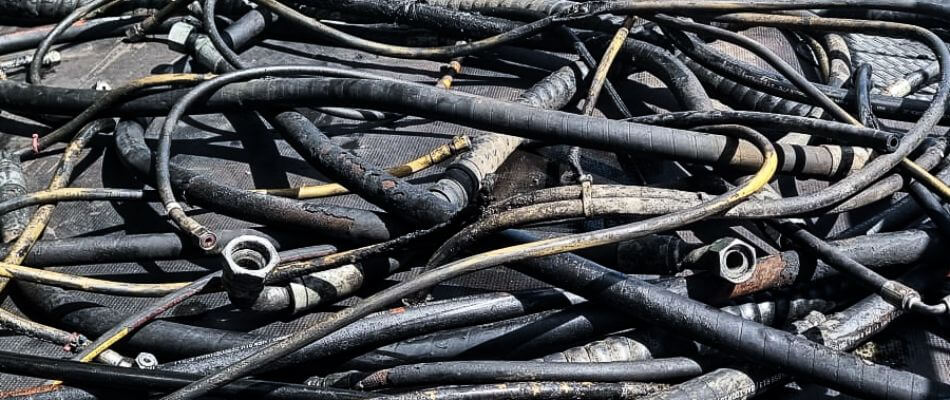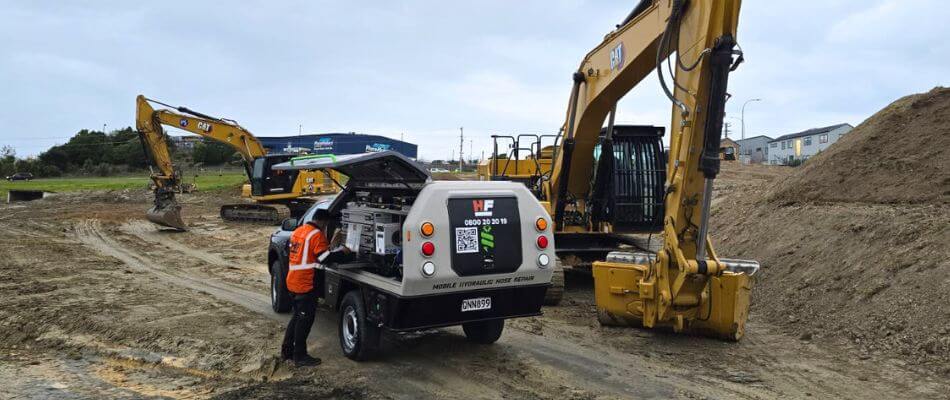Understanding Hydraulic Hose Failures
Hydraulic hose failures can lead to costly downtime and safety hazards. Understanding the common causes and implementing effective prevention techniques can significantly improve the reliability and lifespan of hydraulic systems.
Understanding Hydraulic Hose Failures: Common Causes and Prevention Techniques
Hydraulic hoses are the lifelines of machinery and heavy equipment, enabling the transfer of hydraulic fluid under pressure to various components. Despite their critical role, hydraulic hoses are often subject to failures that can cause costly downtime and equipment damage. Understanding the common causes of hydraulic hose failures and implementing effective prevention techniques can save time, money, and extend the life of your equipment.

Common Causes of Hydraulic Hose Failures
1. Abrasion
One of the most frequent causes of hydraulic hose failure is abrasion. Hoses often operate in harsh environments where they are subject to friction against surfaces or other components. Over time, this can wear down the outer cover and expose the reinforcement layers, leading to leaks or bursts.
Prevention Technique: Use abrasion-resistant covers and protective sleeves, and ensure hoses are routed away from high-wear areas.
2. Incorrect Assembly
Improper assembly of hoses and fittings can lead to premature failure. Common mistakes include incorrect crimping, improper fitting selection, and not following manufacturer specifications.
Prevention Technique: Ensure that assembly is carried out by trained personnel using the correct tools and procedures. Regular training and certification can help maintain high assembly standards.
3. Flexing and Bending
Excessive flexing or bending of hoses can weaken their structure, especially if they are installed with tight bend radii or twisted beyond their design limits.
Prevention Technique: Follow manufacturer guidelines for minimum bend radii and avoid twisting hoses during installation. Use proper routing and clamping to secure hoses in place.
4. Fluid Compatibility
Using hydraulic fluids not compatible with hose materials can cause the hose to degrade, leading to failures like cracking, swelling, or delamination.
Prevention Technique: Verify fluid compatibility with the hose material. Consult with the hose manufacturer if in doubt.
5. Temperature Extremes
Exposure to temperatures outside the hose's operating range can cause hardening, cracking, or softening of the hose material, resulting in failure.
Prevention Technique: Select hoses rated for the operating temperature range of your application and consider using heat shields or insulation if necessary.

Prevention Techniques: The BOA Solutions Approach
At BOA, we understand the critical role hydraulic hoses play in your operations. Our comprehensive onsite hydraulic solutions are designed to help you prevent hose failures and maintain optimal performance. Here’s how our four key pillars can support your maintenance strategy:
1. BOApod: Mobile Hydraulic Hose Repair & Maintenance Facility
The BOApod is your on-the-go solution for hydraulic hose repair and maintenance. It is an all-weather, all-terrain mobile unit that enables the user to assemble hydraulic hoses following the same principles used in original manufacturing facilities.
This mobile unit brings professional repair services directly to your site, minimizing downtime and ensuring your hoses are in top condition.
Features:
- Tough, Robust & Lightweight
- Top Quality Machinery and has a state-of-the-art hose reel system.
- Integrated with the BOAhub, a hydraulic hose management system.
2. Products: Quality Hose & Fittings
We offer a wide range of high-quality hoses and fittings designed to withstand the demands of various applications. Our products are rigorously tested to ensure durability and reliability.
Benefits:
- Long-lasting performance
- Compatibility with diverse hydraulic systems
- Enhanced safety and efficiency
3. Support: People Training and Support
Proper training is essential for preventing hose failures. Our expert team provides comprehensive training and support to ensure your personnel are equipped with the knowledge and skills needed for proper hose handling and maintenance.
Services:
- Hands-on training sessions
- Technical assistance and guidance
- Certification programs
4. The BOAhub: Hydraulic Management Made Easy
The BOAhub Hydraulic Hose Management System is a suite of tools to make hydraulic hose repairs easier. This app allows you to manage and schedule jobs through a Job Card system, scan to reorder, load up assets and assign jobs, create job card reports, and track hoses through a tagging system.
Advantages:
- Easy scan to order feature
- Real-time inventory management
- Job Card Management
- Hose Tag System
- Multi Cart Location
Conclusion
Preventing hydraulic hose failures requires a proactive approach that includes proper installation, regular maintenance, and using high-quality components. By understanding the common causes of hose failures and implementing effective prevention techniques, you can enhance the reliability and longevity of your hydraulic systems.
Our onsite hydraulic solutions are tailored to support your maintenance efforts and ensure your machinery operates at peak performance. Contact us today to learn more about how we can help you prevent hydraulic hose failures and keep your operations running smoothly.